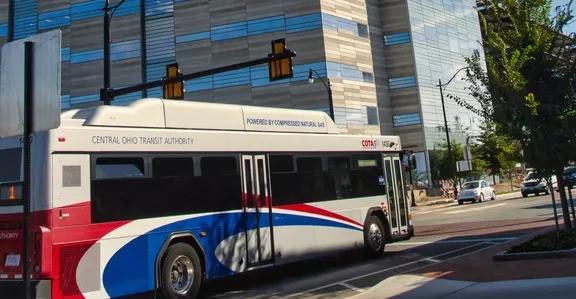
Rekor Systems and Central Ohio Transit Authority (Cota) have developed a single cloud-based platform which they say will optimise transit and traffic management across 13 Ohio counties.
The $2.5m platform takes data from existing infrastructure, including the City of Columbus Computer Aided Dispatch (CAD), to provide web-based dashboards so that participating transit agencies and public safety organisations can have greater visibility of roads, transit and traffic incidents.
It is in part the fruit of a $1.7m Federal Transit Administration IMI Demonstration Research grant to improve public safety, regional collaboration, and the customer experience, which Cota was awarded in March 2020.
Cota provided the additional $800,000 investment and Rekor will receive $2.1m for its services throughout the duration of the programme.
Cota and Rekor believe the system will unify traffic and transit data to improve transit services, increase public safety response times and reduce traffic congestion across Central Ohio.
Over the past year, the Rekor team has created a new transit module within the Rekor One Traffic Management platform, with participation and input from the Ohio partners involved.
Robert A. Berman, CEO and chair of Rekor, says: “Our AI-driven platform enables Cota and its regional partners to proactively monitor real-time traffic conditions to provide improved service to their customers by getting them to their destinations on time.”
“These partnerships across the region and our work with Rekor allow us to collect and share valuable and actionable data to improve insights into transit for our customers and residents who travel throughout the region,” said Cota chief innovation and technology officer Sophia Mohr.
“The preliminary data and results from the Rekor One Transit Module implementation across Central Ohio are very encouraging, and we’re excited to continue this work with all of our partners.”
Cota initially piloted the system from August 2019 to February 2020, allowing the agency to see a real-time display of all active transit routes, and differentiate between early, on-time and late transit vehicles.
Partners involved in the project include Ohio Department of Transportation, Delaware County Transit, Union County Agency Transportation Service, Lancaster-Fairfield Public Transit, Morrow County Area Transit, GoBus, Columbus City (Traffic Management Division, Vision Zero Program, Columbus Division of Police), The Ohio State University, the Columbus Fire Department, Hocking Athens Perry Community Action and Delaware and Union County 911 Services.










